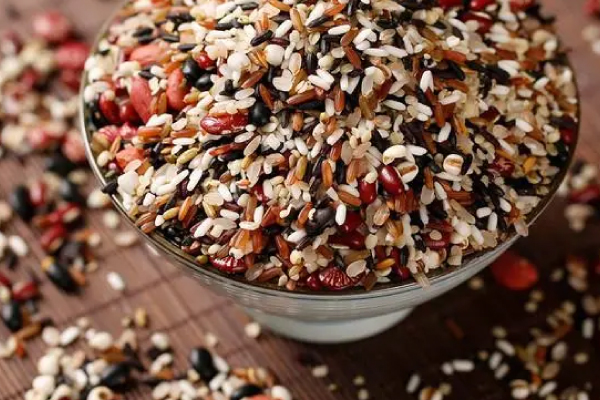What to Do If You Have Poor Digestion? TCM-Based Solutions and Daily Practices for Gut Health

Why Poor Digestion Affects Your Whole Body
Do you often feel full after just a few bites? Struggle with bloating or constant burping? Wake up with dry mouth, bad breath, pale lips, and low energy?
Even if you eat healthily and take supplements, you might still feel weak and sluggish-this could all trace back to poor spleen and stomach function, as understood in Traditional Chinese Medicine (TCM).
When your digestive system underperforms, it fails to transform nutrients into usable energy, disrupting your body’s entire metabolic and immune system. Common symptoms of spleen deficiency include alternating diarrhea and constipation, thick tongue coating, sallow complexion, weak limbs, and poor concentration.
What Causes Poor Digestion in TCM?
TCM regards the spleen as the foundation of postnatal health and the source of qi and blood production. The spleen governs transportation and transformation, while the stomach is responsible for receiving and digesting food. Their harmony ensures proper nutrient absorption and energy flow.
When the spleen and stomach malfunction, symptoms like poor appetite, bloating, loose stools, emaciation, and fatigue emerge. Spleen deficiency is commonly associated with qi deficiency, dampness retention, and yang deficiency.
Moreover, the spleen (earth element) is intricately linked to the liver (wood) and kidneys (water). Emotional distress such as anxiety or depression can disrupt liver qi, which in turn affects the spleen’s ability to function. Hence, TCM always treats digestion holistically, considering body constitution, pulse, and tongue analysis. Is Honey Good for Gastric Problems? Complete Guide to the Best Ways to Take It
Common Misconceptions About Gut Health
Some popular beliefs about digestive health may actually worsen your condition. Here are three common myths:

Myth 1: Drinking lots of soup boosts your stomach
Contrary to this belief, excessive liquid intake dilutes stomach acid and weakens digestive fire. TCM warns, “too much drinking harms the spleen.”

Myth 2: Whole grains are always healthier than white rice
While rich in fiber, grains like brown rice and oats are hard to digest, especially for those with weak spleens. They can cause bloating and diarrhea if not properly cooked or overconsumed.

Myth 3: Eating fruit on an empty stomach is best
Raw and cold fruits like watermelon or pears can harm the spleen’s yang energy when eaten in the morning. Opt for warm, ripe fruits and consume them after meals.
Digestive Disorders: Modern Prevalence and Data
Digestive disorders have become increasingly common. According to the “China National Nutrition and Chronic Disease Report,” over 60% of adults experience digestive discomfort, including acid reflux, bloating, and indigestion.
Reports from the World Gastroenterology Organization show that functional dyspepsia affects 20–30% of adults in East Asia, especially among urban office workers.
A study by a Traditional Chinese Medicine university also found that over 70% of people with sub-health conditions exhibit signs of spleen and stomach deficiency, including fatigue, thick tongue coating, poor appetite, and reduced immunity.
Lifestyle Factors That Damage Your Digestion
High-pressure jobs, fast food culture, and sleep deprivation have made “weak digestion” a modern lifestyle disease. Key contributors to weakened spleen function include:
- Irregular eating habits: Overeating, sugary foods, and cold/raw diets damage spleen yang.
- Emotional stress: Anger and worry disturb liver qi, which in turn affects digestion.
- Lack of sleep: Nighttime is when spleen qi regenerates; staying up late causes energy depletion.
- Sedentary lifestyle: Reduces qi circulation, slowing digestion.
Left unchecked, these issues lead to lowered metabolism, weight fluctuations, immune dysfunction, and even mental fatigue. Restoring digestive strength should be a priority for urban dwellers.
8 Practical Daily Tips to Improve Digestion
- Chew thoroughly: Chew each bite at least 50 times to aid enzyme activation.
- Eat mindfully: Avoid watching screens or multitasking during meals.
- Don’t lie down after meals: Wait at least 2–3 hours to avoid reflux.
- Walk post-meal: A 10-minute stroll helps food move through your system.
- Avoid raw or cold foods: Ice, salads, and cold drinks weaken spleen yang.
- Limit hard-to-digest items: Reduce coarse grains, fried foods, and sweets.
- Eat fruit after meals: Prevent spleen injury by consuming fruit 30 minutes post-meal.
- Eat at fixed times: Regular meals train the spleen to maintain balance.
Seasonal Spleen Care Tips
Spring: Eat sweet, mild foods like yam and red dates to support spleen qi. Summer: Use mung beans and coix seeds to drain dampness and prevent heat. Autumn: Nourish dryness with millet porridge and gentle grains. Winter: Strengthen the spleen with warming foods like lamb stew and sesame oil chicken.
Recommended Digestive Support Products
Enhance your daily routine with these expertly formulated gut health products:
NuSpring Gutwell | Gut Nourishing Meal Powder: Contains 12 strains of probiotics, tailored for Asian gut profiles. Ideal for those with reflux, bloating, or irregular bowels. Supports gut flora balance and gut lining repair.
Food Art Souperkid AmHungry: A ready-to-brew herbal soup designed for kids but perfect for the whole family. Strengthens digestion, relieves food stagnation, and increases appetite.
Eu Yan Sang Huai Shan And Si Shen Multigrain Meal: A classic TCM blend for spleen nourishment combined with wholesome grains. Gentle on digestion and perfect for breakfast or meal replacement.
FAQ: Your Gut Health Questions Answered
Do all people with poor digestion experience stomach pain?
Not always. Most people experience subtle symptoms like bloating, fatigue, and loss of appetite. Pain might suggest ulcers and requires medical attention.
Why do even young people suffer from poor digestion?
Modern stress, cold drinks, irregular meals, and sleep deprivation take a toll on young people’s digestive health.
Do I need to take herbal medicine to strengthen my digestion?
Not necessarily. Diet and lifestyle changes are key. But for persistent symptoms, herbal supplements tailored to your constitution can accelerate recovery.
Can fruit help digestion? Yes, but only certain types. Papaya and apples help digestion. Avoid cold, raw fruits like watermelon or pears, especially on an empty stomach.
How soon will I see improvement after adjusting my diet?
Typically within 3–4 weeks if changes are consistent. Full benefits may take 1–2 months depending on your constitution.
Final Thoughts
Poor digestion is more than a discomfort-it's a signal that your body’s internal balance needs attention. Instead of masking symptoms with temporary fixes, focus on rebuilding digestive health from the root.

 Bahasa melayu
Bahasa melayu 中文
中文
























